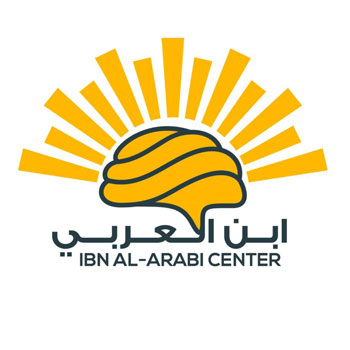The Role of Artificial Intelligence in Developing Islamic Studies: Opportunities and Challenges
DOI:
https://doi.org/10.56989/benkj.v4i8.1137Keywords:
Islamic studies, generative artificial intelligenceAbstract
Artificial intelligence models have become important in improving the quality of life, as they are applied in various fields such as economics, social sciences, and scientific research. In the field of Islamic studies, researchers have started to adopt artificial intelligence to enhance their research, which offers tremendous opportunities in this area. However, the challenges posed by artificial intelligence in this context threaten rigorous scientific research, which has its foundations and principles. To address this scientific paper titled "The Role of Artificial Intelligence in Developing Islamic Studies: Opportunities and Challenges," the descriptive method will be adopted to describe the current use of artificial intelligence in Islamic studies, and the analytical method will be used to analyze the available data for a deeper understanding of the issue presented by the research. Several conclusions have been reached, including the importance of artificial intelligence in preserving manuscript heritage, facilitating translation processes, and using its tools to simplify research and studies. On the other hand, the challenges are numerous, such as the loss of critical acumen and the volume of inaccuracies that generative AI data might contain.
Metrics
References
• أويارخوا عبد الغني عيسى (2022): أثر الأضداد الظرفية في تفسير القرآن الكريم وترجمة معانيه إلى اللغة الإنجليزية، مجلة الدراسات اللغوية، 24 (3).
• بن بيه عبد الله (2018): صناعة الفتوى وفقه الأقليات، الطبعة الثانية، مركز الموطأ، الإمارات العربية المتحدة.
• بونيه آلان، ترجمة علي صبري فرغلي (1993): الذكاء الاصطناعي: واقعه ومستقبله. عالم المعرفة (172)، الكويت.
• العادل مصطفى (2023): أبحاث في اللسانيات والإيبستيمولوجيا، الآن ناشرون وموزعون، عمان، الأردن.
• الهيئة السعودية للبيانات والذكاء الاصطناعي (2022): معجم البيانات والذكاء الاصطناعي، الطبعة الأولى، الرياض، المملكة العربية السعودية.
• كالونج ديفيد سانتاندريو (2024): الذكاء الاصطناعي في التعليم، مجلة مستقبليات تربوية، 6 (5).
• منصور سليم هاني (2017): الوثائق الوقفية أهميتها ودورها في كتابة التاريخ، الطبعة الأولى، دار الكتب العلمية، بيروت، لبنان.
• اليونيسكو (2024): دليل معلمي الصحافة، تقرير حول الذكاء الاصطناعي، منشورات اليونيسكو، باريس، فرنسا.
• Al Jazeera. (2021): https://www.aljazeera.net/tech/2021/3/20/هل-التزييف-العميق-يمثل-في-الواقع.
• BBC Arabic. (2021): https://www.bbc.com/arabic/world-56847670.
• BBC Arabic. (2024): https://www.bbc.com/arabic/articles/c89wxzzgdgro.
• CNN. (2021): https://arabic.cnn.com/middle-east/article/2021/12/15/ef-english-proficiency-index-2021-infographic.
• Cockrell, Jeff. (2024): Where AI Thrives, Religion May Struggle. CBR - Artificiel Intelligence. https://www.chicagobooth.edu/review/where-ai-thrives-religion-may-struggle.
• FatwaUAE. (2024): https://fatwauae.gov.ae/ar/home.
• GPH. (2022): https://gph.gov.sa/index.php/ar/component/k2/item/7759-2022-05-31-09-47.
• iThenticate. (2024): Content Database "Comprehensive coverage you can trust across the internet, scholarly articles, and industry papers." Accessed July 23, 2024. https://www.ithenticate.com/resources/content-database.
• Netburn, Deborah. (2023): Can Religion Save Us from Artificial Intelligence? Los Angeles Times. https://www.latimes.com/world-nation/story/2023-03-03/can-religion-save-us-from-artificial.
• UNESCO. (2024): https://www.unesco.org/en/digital-education/artificial-intelligence.
Downloads
Published
How to Cite
Issue
Section
License
Copyright (c) 2024 Ibn Khaldoun Journal for Studies and Researches

This work is licensed under a Creative Commons Attribution-NonCommercial 4.0 International License.































 ElDjawda Soft
ElDjawda Soft